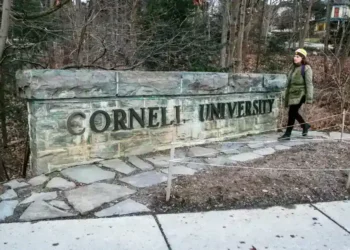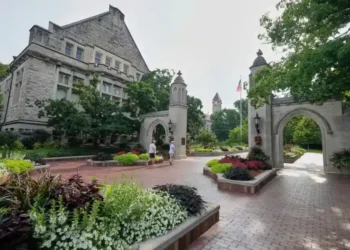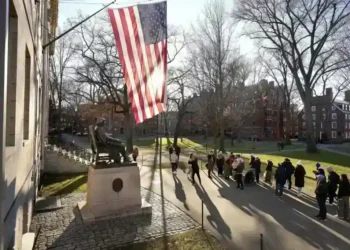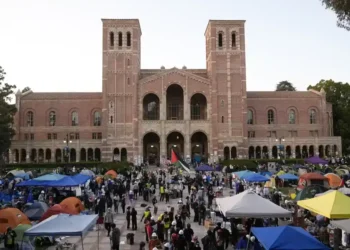As DEI Policies Face Political Pushback, Students Fight to Keep Cultural Graduation Traditions Alive
Across the U.S., colleges are canceling long-standing cultural and identity-based graduation ceremonies due to mounting political pressure — but students are stepping up to keep the traditions alive off campus.
Harvard Cancels Black Graduation, Students Push Forward
At Harvard University, Elyse Martin-Smith had been planning a celebration of Black culture since last summer. The student-led Black graduation was set to include music, poetry, and a keynote speech from 1619 Project creator Nikole Hannah-Jones.
The event was scheduled for the Harvard Memorial Church, but just weeks before commencement, Martin-Smith said she was told by university officials it could no longer be held on campus. The cancellation followed the university’s decision to rename its DEI office and withdraw funding for all affinity group commencements, a move announced in April after the Trump administration froze $2.2 billion in federal funds over the school’s refusal to comply with new policy demands.
“This isn’t the first time the university has catered to PR concerns over student needs,” Martin-Smith said. Still, she wasn’t deterred. With support from Harvard’s Black Graduate Student Alliance and Black Alumni Society, she secured an off-campus venue. The event, still featuring the original program, will take place May 27.
“It’s an undue burden we keep facing — having to fight just to celebrate our own culture,” she added.
Affinity Graduations Under Threat Nationwide
Harvard is not alone. Several universities are backing away from support for affinity graduations — celebrations traditionally held to honor the achievements of marginalized student groups, including Black, Hispanic, LGBTQ+, first-gen, and Asian students. Though optional and separate from main commencements, these ceremonies have become meaningful platforms to recognize identity, culture, and heritage.
The trend comes as former President Donald Trump and other conservative leaders campaign aggressively against DEI (Diversity, Equity, and Inclusion) efforts, labeling them discriminatory and threatening schools with cuts to federal funding and accreditation.
At the University of Kentucky, for instance, all identity-based graduation events were scrapped earlier this year.
“Due to changes in federal and state policy, the university will no longer host special-interest or identity-based graduations,” a university spokesperson stated.
‘Senior Salute’ Fills the Gap in Kentucky
Kristopher Washington, a University of Kentucky graduate and Alpha Phi Alpha fraternity member, didn’t let the school’s decision end his celebration. Working with his fraternity brothers, Washington organized an off-campus event called “Senior Salute” at the Lyric Theatre & Cultural Arts Center.
The inclusive ceremony encouraged graduates to wear symbols of their identity and background.
“It’s about showing that people from different places and struggles are still making it to the finish line,” Washington said. “That’s worth celebrating.”
A Deeper Cultural Meaning
Dr. Antar Tichavakunda, an assistant professor at UC Santa Barbara and author of Black Campus Life, emphasized the importance of these events in giving students a sense of pride and cultural affirmation.
“Most traditional commencement rituals have European origins,” he explained. “Black graduations, for example, often include West African drumming, speakers who understand the Black experience, and celebrations that reflect our heritage.”
“Being able to celebrate in a space where we’re not policed — where our music, language, and culture are welcomed — makes the moment even more meaningful,” he said.
LGBTQ+ Graduations Also Under Fire
The LGBTQ+ community has also felt the impact. Lavender Graduations, which honor queer graduates, are being shut down in states with new anti-DEI laws.
In Utah, Governor Spencer Cox signed legislation last year banning DEI programs in education and government. As a result, many universities have shuttered identity resource centers and ended support for Lavender Graduations.
Jacey Thornton, executive director of Project Rainbow Utah and a recent graduate of Weber State University, stepped in to help. Her organization supported a community celebration for LGBTQ+ students at a local church, complete with pride flags, rainbow tassels, and lavender stoles. Students from multiple colleges in Utah attended.
“It’s not just about the degree,” Thornton said. “It’s about honoring the journey — especially for those of us who’ve lost family or faced rejection along the way. These gatherings help us form a chosen family.”
Looking Ahead: Students Get Creative
With official support fading, students are finding new ways to celebrate their identities.
Tichavakunda believes this could mark a shift in how students choose colleges. “Schools that don’t support these traditions may lose students to institutions that do — especially HBCUs,” he said.
But he’s also optimistic: “This won’t be the end of cultural graduations. Students will continue to find creative ways to keep them alive — even without university backing.”
This article was rewritten by JournosNews.com based on verified reporting from trusted sources. The content has been independently reviewed, fact-checked, and edited for accuracy, neutrality, tone, and global readability in accordance with Google News and AdSense standards.
All opinions, quotes, or statements from contributors, experts, or sourced organizations do not necessarily reflect the views of JournosNews.com. JournosNews.com maintains full editorial independence from any external funders, sponsors, or organizations.
Stay informed with JournosNews.com — your trusted source for verified global reporting and in-depth analysis. Follow us on Google News, BlueSky, and X for real-time updates.














